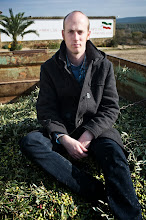MPs do the right thing; predicted cold snap fails to materialise in hell
Since last year the House of Commons Culture, Media and Sport Committee have been hearing evidence about the 2003 Licensing Act, about Form 696, and about how bureaucracy has come to shackle live music, clubs and even circuses. Astonishingly, the cross-party Committee of MPs has done the right thing, and called on the government to scrap 696 and re-liberalise small-scale music events. It’s a rare fillip for the image of MPs in these dark times: evidence of a switched-on, liberal parliamentary democracy, heeding popular feeling (the anti-696 petition), common sense (unlicensed live music does not result in orgies of violence), and expert witnesses (like Feargal Sharkey of UK Music, who I also interviewed for the Guardian piece on 696 and black music).
Politicians in acting-for-the-public-good SHOCKA. It does happen. Full story on The Guardian Music Blog.
Subsequently the Met Police have gone on the defensive, claiming 696 has helped reduce violent crime in this BBC interview:
"A co-ordinated effort, and 696 assisting the process of identifying potential gang conflict, is undoubtedly contributing towards that reduction of shooting incidents in licensed premises."
How 696 assists with identifying potential gang conflict is not made at all clear. The viability of the Met's stats are also unclear, with no proof of causality, and especially given they've been summoned specifically in response to criticism. What is increasingly clear is that the often-rumoured Police blacklist of artists - musicians whose names will get a rave shut down immediately - must exist. UK Music are trying to find out more about this issue, do get in touch with them if you know more.
Politicians in acting-for-the-public-good SHOCKA. It does happen. Full story on The Guardian Music Blog.
Subsequently the Met Police have gone on the defensive, claiming 696 has helped reduce violent crime in this BBC interview:
"A co-ordinated effort, and 696 assisting the process of identifying potential gang conflict, is undoubtedly contributing towards that reduction of shooting incidents in licensed premises."
How 696 assists with identifying potential gang conflict is not made at all clear. The viability of the Met's stats are also unclear, with no proof of causality, and especially given they've been summoned specifically in response to criticism. What is increasingly clear is that the often-rumoured Police blacklist of artists - musicians whose names will get a rave shut down immediately - must exist. UK Music are trying to find out more about this issue, do get in touch with them if you know more.


.jpg)







